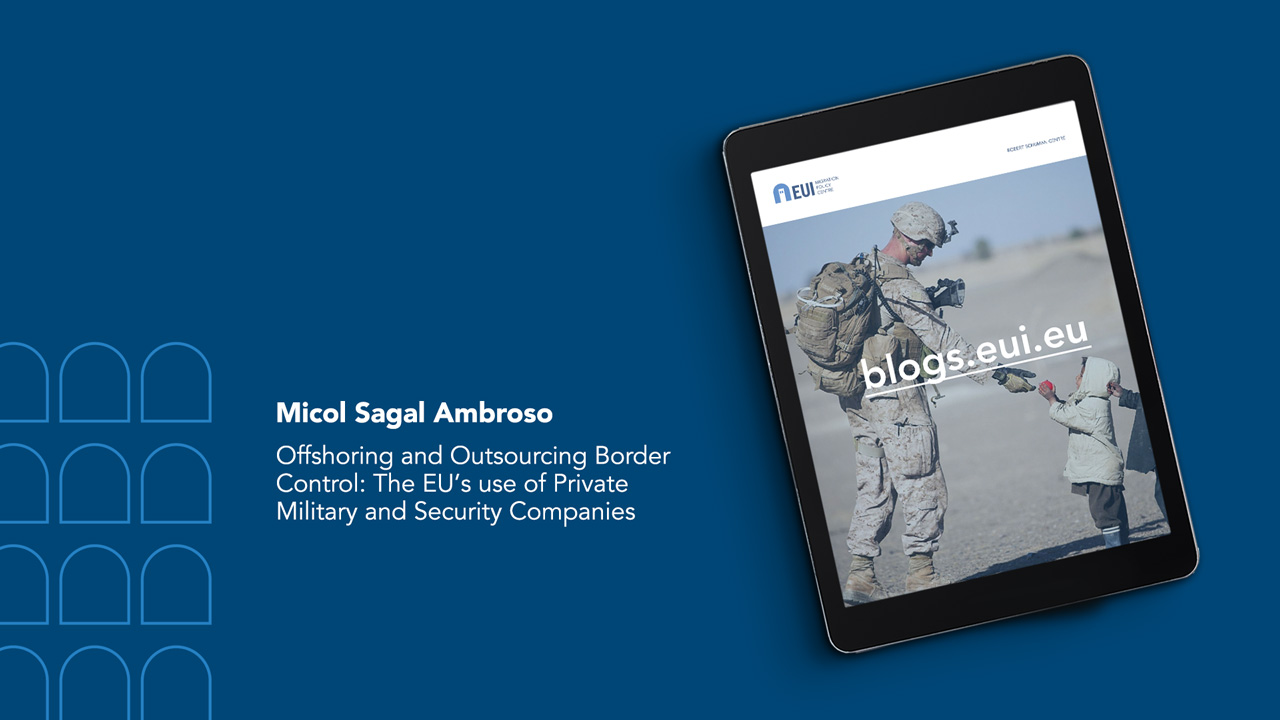The European Union (EU) and its Member States (MS) are heavily reliant on Private Military and Security Companies (PMSC) to enforce their migration policies. PMSCs, for example, are involved in the management of offshore detention centres and in the implementation of forced returns. In this blogpost, I show that the absence of legally binding international and European regulation of PMSCs has contributed to a lack of transparency surrounding EU contracts with PMSCs and accountability in instances of human rights violations.
What are PMSCs?
PMSCs provide migration management services such as drone surveillance and the collection of biometric data. European PMSCs such as Thales and Leonardo represent a sector of major financial significance to the EU, with a turnover of €97.3 billion in 2014. Moreover, certain Member States are significant shareholders within these companies. For example, in 2019 the Italian Ministry of Economy and Finance owned 30% of Leonardo shares, while TSA, a holding company owned by the French states, owned 25% of Thales shares.
PMSCs actively participate in the making of migration and border control policies. For example, within Horizon 2020, an EU funded research and innovation programme, the private for-profit sector was the second biggest sector to receive funding from the EU (28%) in the period 2014 to 2020. Within that sector, seven out of the top ten participants to receive funding were members of the European Organisation for Security (EOS), a lobby group with several defence and security companies. Additionally, a report published in 2021 by the left of the European Parliament (GUE/NGL) underscored, among other things, that there exists a strong revolving door between the security industry and the EU. For example, Thierry Breton who is the current Commissioner for the Internal Market and is responsible for the implementation of the European Defence Fund and the Action Plan on Military Mobility was previously the head of Thales. It is difficult to assess the extent to which PMSCs influence policies, but these developments point to a deep enmeshment between EU institutions and this industry.
The need for PMSCs’ technology and expertise extends to policies through which the EU collaborates with non-EU states in the control and management of migratory flows. For example, in 2014, Selex Sistemi Integrati S.p.A was involved in a border security deal with Libya funded by the EU and Italy, which included the supply of advanced border control systems such as satellite-based systems for monitoring the whole cost of Libya.
This is a part of a blog post by Micol Sagal Ambroso who is a master’s candidate in International Relations and Political Science at The Graduate Institute Geneva and an exchange student at the School of Transnational Governance of the European University Institute.
